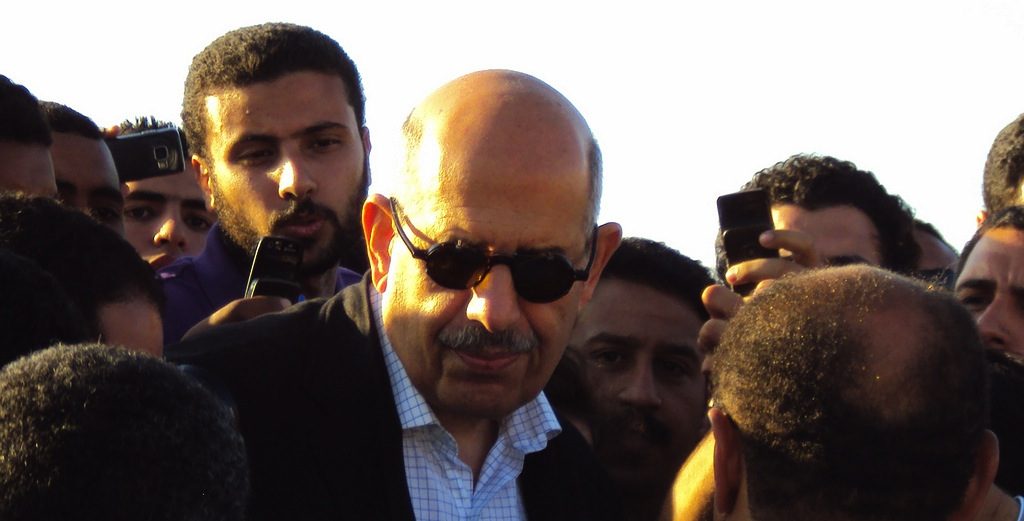
Reactions to the National Salvation Front’s decision last week to boycott the upcoming parliamentary elections – which have since been delayed due to legal wrangling – generally followed well-established rhetorical lines. Supporters of the boycott lamented President Morsi’s mismanagement, the ‘brotherhoodization’ of the country and saw a boycott as a way to deny the current government political legitimacy. In contrast, those opposed saw plans to boycott as ineffective political posturing that would do nothing constructive to further Egypt’s political life. Here are a few highlights:
Writing in the independent Al-Shorouk, Emad al-Ghazali states that “boycotting the elections is the first step” on the path to “saving Egypt from Morsi and the Brotherhood.” He writes:
I agree completely with Dr. Mohamed ElBaradei’s call to boycott the parliamentary elections. Boycotting is not a negative act, as the mouthpieces of the Brotherhood try to paint it, but rather it is one of the ways to expose the regime and deprive it of the false legitimacy that it is attempting to gain.
“Is it a boycott or just fear and avoidance of failure?”
Writing in Huriya wa Adala, the media outlet of the Freedom and Justice Party, Walid Shalabi argues that a boycott is in fact a negative act, and stems more from the fear of losing than from any political principle. Stating that the “complete rejection” of the elections makes no sense, he writes that:
“Anyone who truly loves Egypt and wants to reconstruct it after all that has happened needs to delete the following words from their the dictionary: disobedience, strike, arson, overthrow, and replace them with positive, constructive words like: reconstruction, building, construction, solidarity, integration, unity, love, fraternity, honorable competition, constructive opposition.”
“The Elections: Participate or Boycott?”
In the independent Al Masry Al Youm, Akmil Qartam – the head of Hizb al-Muhafizin, a self-described ‘center-right’ party – holds out hope that the upcoming parliament will be able to improve the outlook for Egypt, provided that the political environment prior to the elections allows for a diverse set of representatives. He writes:
I believe that the participation of all parties and everyone who has a vision, who has an idea, and who has popular support is necessary to put the affairs of this country on a stable footing so that the next parliament can move Egypt from this depressing present into a welcoming future…This is my personal view, and has no relation to any party, faction, front, or current, and it doesn’t mean that I will participate in these elections. Rather, it means that I hope that conditions are created that support the participation in this parliament of (all the) parties, as well as everybody who has a vision and who has ideas.
Andrew Ver Steegh is a graduate student at the University of Chicago. He was a Fulbright Fellow in Egypt in 2010-2011
Photo: Justicentric
Image: Baradei.jpg
